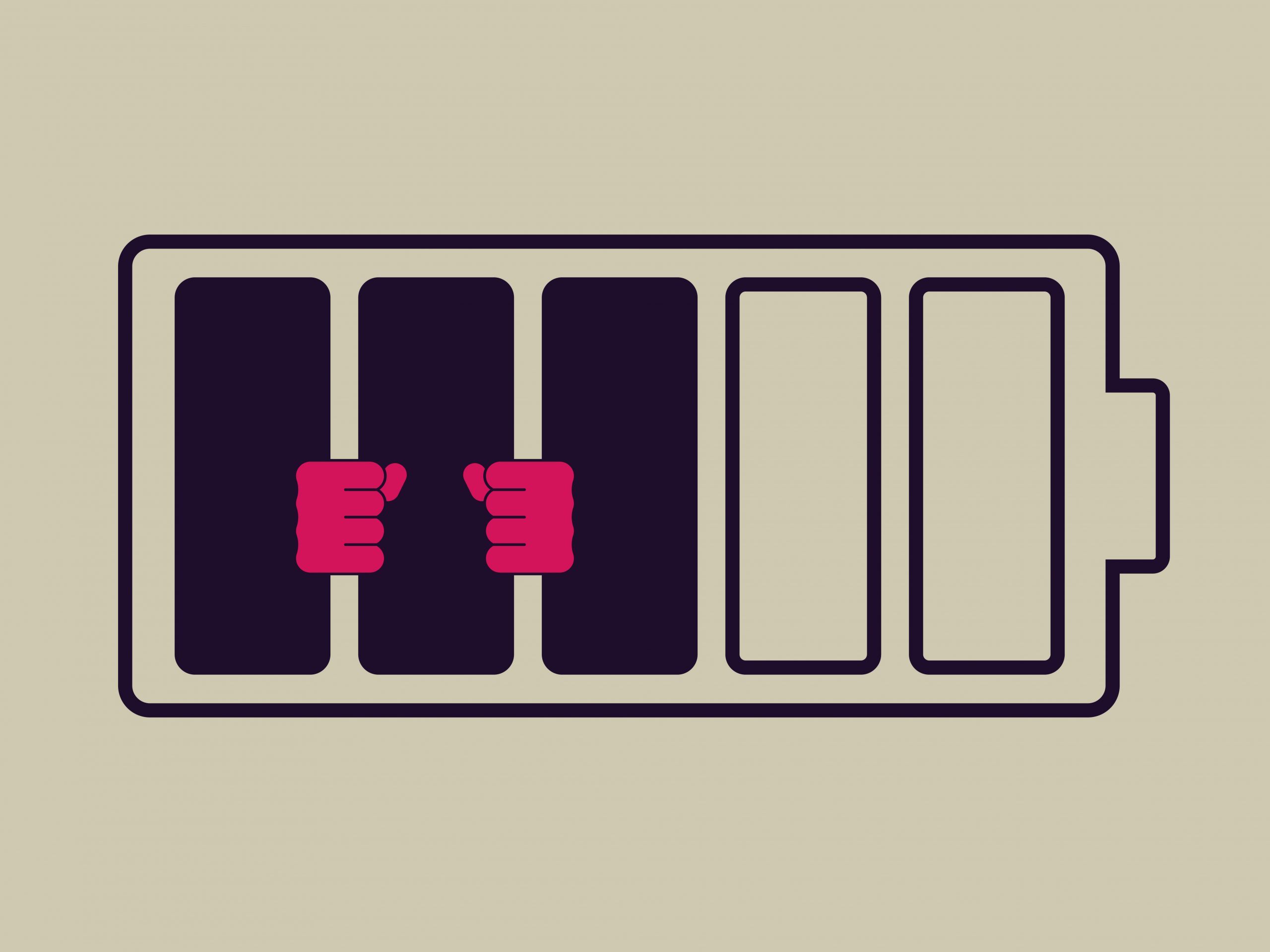Our new technological environment is inescapable, as are the threats it poses.
Against Digital Enslavement

Americans should resist technological subjugation by any means necessary.
This feature presents responses to an excerpt from Claremont Institute Executive Editor James Poulos’s forthcoming book Human, Forever: the Digital Politics of Spiritual War. Sign up at humanforever.us to be the first to know when Human, Forever NFTs and sales go live on canonic.xyz.
The various debates surrounding the proper societal role of “Big Tech” ultimately come back to rudimentary questions of sovereignty and republican self-governance. These same questions become even more vital in the face of the humanity-sapping lifestyle affliction that James Poulos refers to as the “digital medium” at large. What we need, as I argued at American Compass last January, is “a concerted effort, on behalf of ‘We the People,’ to reclaim from the machines, the digital medium, and the Silicon Valley oligarchs the republican self-governance—rightfully ours—of which the Constitution’s Preamble so famously speaks.”
The imperative to reclaim our most foundational sovereignty—that is, greater direct control of our day-to-day actions, thoughts, interactions, business decisions, and, ultimately, our very shared human destiny—from the machines and their manipulated algorithms is the sine qua non of just and righteous “tech”-related policymaking in the digital age. This is a point that I attempted to hammer home time and again in my recent “Big Tech” debate in Grand Rapids, Michigan against Carl Szabo of NetChoice. Based on all the nodding heads I noticed in the audience, it resonated.
The American people by and large oppose digital enslavement. But instinctively, Americans also realize that such enslavement does indeed aptly characterize our current predicament. Americans are enslaved to the one-click shopping addictions of Jeff Bezos’s “neo-Dickensian” horror show, chastened by the debilitating chains of Mark Zuckerberg’s grotesque election interference gambits, routinely provoked into rage by deliberately polarizing social media algorithms, stifled and suppressed by modern-day robber baron Silicon Valley oligarchs like Google, and subject to a modern-day public square where Stanford and Berkeley computer science Ph.D. dweebs have “more power over what they can and cannot say in the public square than the First Amendment does.” “Big Tech” has emerged as the “ruling class’s preferred private-sector enforcement arm,” and the ruling class seeks to concentrate the digital medium into the palm of its proverbial hand, wielding it as a convenient “private-sector” catspaw to execute regime-level power in the service of rewarding its “Anywhere” friends and punishing its “Deplorable” enemies.
The concentration of the digital medium into one monolithic, easily-utilized catspaw is the key, as Poulos suggests. Every medium that previously had some level of authority, gravitas, or culture-shaping force has collapsed into a single digital morass. There is no longer a meaningful distinction, from this perspective, between digitized U.S. Army propaganda, the latest Marvel film, Call of Duty, and what The New York Times puts on its front page. The ruling class and, by extension, the regime at large, desperately wants to control and dictate the terms of the digital medium blob to allow for easiest weaponization and subjugation. But it faces increasing cultural headwinds.
The ruling class and the digital medium over which the ruling class seeks dominance have thus overstepped, in part due to the fact they have repeatedly truncated roiling debates about the teleology of humanity and purpose of mankind itself, preferring instead to live in the profoundly fake existence of algorithmic tyranny that has thus far characterized life in the digital age. In short, the time is ripe for the regime and the digital medium to face a long-overdue just comeuppance. Our digital problems run too deep, and are far too structural and culturally embedded, for there to be one convenient panacea. But it does begin with statesmen, policymakers, and jurists allowing themselves to get their hands dirty in order to take back sovereign control over our own human interactions, and indeed our shared destiny, from the machines.
As I suggested in the Compass piece above, there is some doctrinal precedent: “From a constitutional law perspective, the proper analogy might be to legal conservatives and libertarians’ long-desired resuscitation of the ‘non-delegation doctrine,’ which would empower an enfeebled Congress at the expense of the executive branch’s administrative state.” In other words, just as many in conservative legal circles have long argued, on fundamentally republican grounds of self-governance, that Congress must affirmatively act to reassert its rightful place in the constitutional order from bureaucrats and judges, so too must Congress now affirmatively act to rein in the “Mountain View-Menlo Park nexus of woke leftist corporatism…lest technocracy vanquish democracy anew.”
Such forthright, prudential assertions of state power are wholly just and proper, recalibrating the balance of power between humans and machines in a way that redounds to the common good. If the “realignment Right” is to take seriously the idea that the state must prudentially wield power to pursue its vision of the substantive good, then there is no better place to start than in subduing the machines and their blood pressure-spiking algorithmic madness. Indeed, our very humanity requires that all policy options—Section 230, antitrust, common carrier regulation, anti-discrimination mandates, algorithm regulation and terms of service disclosure requirements, and so forth—remain on the table. That means, quite literally, all of them.
In the meantime, get off the computer, put down the iPhone, and go for a nice, long walk outside. Then take a deep breath and take back your humanity.
The American Mind presents a range of perspectives. Views are writers’ own and do not necessarily represent those of The Claremont Institute.
The American Mind is a publication of the Claremont Institute, a non-profit 501(c)(3) organization, dedicated to restoring the principles of the American Founding to their rightful, preeminent authority in our national life. Interested in supporting our work? Gifts to the Claremont Institute are tax-deductible.
Our human need for connection should keep us grounded in reality.
Our unruly digital environs are frightening, but they’re better than total bureaucratized control.
A cloud of soulless bots has devoured our grandest dreams. How do we live now?




